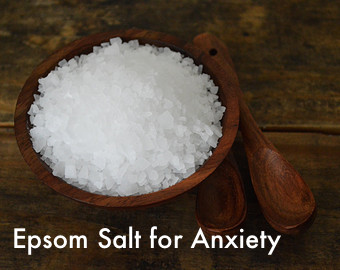How do you manage anxiety? Is it exercise, meditation, deep breathing? We all have tactics to reduce daily stress but for some people, anxiety can have crippling effects. For those, prescription medication is required and is a lifelong reality. Relief may have another component though. Food. Twenty percent of Americans suffer from debilitating anxiety and all fingers are pointing to processed foods. if you are looking for some anxiety relief, click the link.
Standard American Diet to Blame
The American diet is lacking in essential nutrients that literally feed the brain. In the past forty years, our diet has gone through radical changes resulting in high levels of inflammation throughout the body and particularly the brain. Subsidized farming is largely to blame. When soy and corn became America’s cash crops, body inflammation rose. These ubiquitous foods are not only found in our food products but also the feed of the animals we eat. Corn and soy and other grains are high in omega 6 fatty acids, which are necessary components of a health diet but not at the levels we now consume them. Omega 6 fatty acids must be in balance with omega 3 fatty acids to mitigate inflammation. There are now findings that foods rich in omega 3s may act as antidepressants.
Less than forty years ago omega 3s were the most abundant fats in the world. Grazing animals would convert the plants they ate into omega 3s and then would be more absorbable for our bodies. Now when these same animals are fed grains, there is no source of omega 3s and the omega 6 in their feed dominates. The same goes for farm-raised fish fed similar grain.
Since the advent of subsidized farming, rates of anxiety and depression have continued to climb. Chris Kresser goes so far to say that depression is an inflammation problem. And in order to decrease that inflammation we must balance our omega 3 with our omega 6 intake. The imbalance is thought to be at the root of multiple health issues, including hormonal and neurological problems. Omega 3s help stabilize our neuronal cell membranes and may be helpful in treating attention deficit disorders, depression, bipolar disorders,and early dementia.
How Omega 3s Help the Brain
The brain is hyper-sensitive to inflammation and I’m not talking about the kind that results in a headache. But the kind that lies deeper in your cells. Omega 6s carry inflammatory hormones known as eicosanoids, which cause disrupted nerve signaling in the brain. Our brains are also composed of sixty percent fat, the most of any organ, and we need a steady supply of the right finds of fat from food to maintain it.
Omega 3 fatty acids are a family of naturally occurring fats and three of which are essential for human functioning, alpha-linolenic acid (ALA), eicosapentaenoic acid (EPA), and docosahexaenoic acid (DHA). Our bodies do not produce these in any form so they must be consumed through diet. EPA and DHA are found in the brain. DHA is structural while EPA is anti-inflammatory. When EPA is low, inflammation increases and our bodies use up EPA quickly so it must be replenished often. Fatty fish is the best source of these omega 3s. The third type, ALA, is only found in plants and difficult to convert into the usable forms EPA and DHA.
Eat More Fish
Iceland has disproportionately low rates of seasonal affective disorder, depression, bipolar disorder, and postpartum depression. Considering it’s cold climate and lack of sun this seems unlikely. The link is that Icelanders eat more fatty fish per capita than anywhere in the world. And for those that eat little fish these rates still apply. The omega 3s are abundant in dairy and in pastured animal meat too. Their grasses are quite rich in ALA which the animals are converting into EPA and DHA.
Omega 3-rich food sources are now being recommended by some psychiatrists for depression and anxiety. They are prescribe as a substitute or enhancer for antidepressant medications, 1 gram per day of EPA or EPA+DHA. The hope is that omega 3s will reduce prescription dosages since antidepressants can have uncomfortable side-effects like sexual dysfunction and diminished libido. An increased intake for EPA has been shown to improve abilities to handle stress and generate significant improvements in mood. Even “normal” individuals are shown to be happier and have a better capacity for stress when consuming higher levels of EPA.
To feed your brain and fight off neurological disease, consider adding more omega 3 sources to your meals. Most successful research studies used two grams of EPA per day as their testing amount. That would be the equivalent to two pounds of salmon per day. That’s a lot of fish! And considering the environmental impact, our ocean supplies cannot account for that demand. Instead of salmon, try fish eggs as an alternative bioavailable source of omega 3s. Just one teaspoon of caviar has the same nutritional benefit as 4 ounces of salmon.
Try these Yummy Omega 3 Rich Recipes!
Wolfe, Liz. Eat the Yolks: Discover Paleo, fight food lies and reclaim your health
Is Depression a Disease or a Symptom of Inflammation? http://chriskresser.com/is-depression-a-disease-or-a-symptom-of-inflammation/
The Neuroscience Vitality Tip, https://www.psychologytoday.com/blog/vitality/201407/the-neuroscience-vitality-tip-5-omega-3-fatty-acids
Omega 3 and Brain Health, https://www.psychologytoday.com/blog/your-brain-food/201106/omega-3-and-brain-health
Anxiety and Omega-3 Fatty Acids, https://www.psychologytoday.com/blog/in-the-zone/201201/anxiety-and-omega-3-fatty-acids
Omega-3 Fatty Acids: An Essential Contribution, http://www.hsph.harvard.edu/nutritionsource/omega-3-fats/





